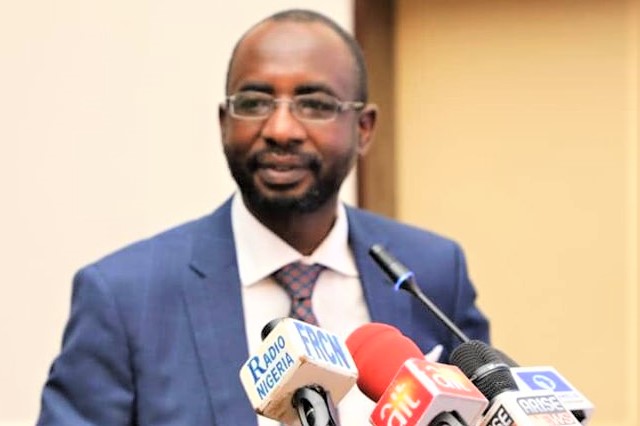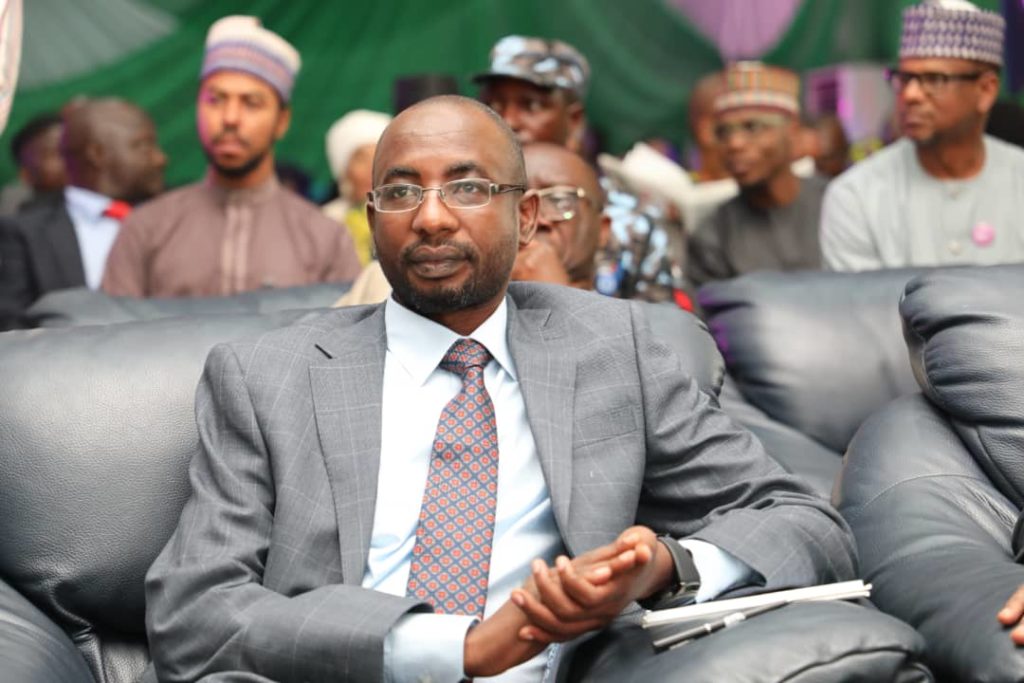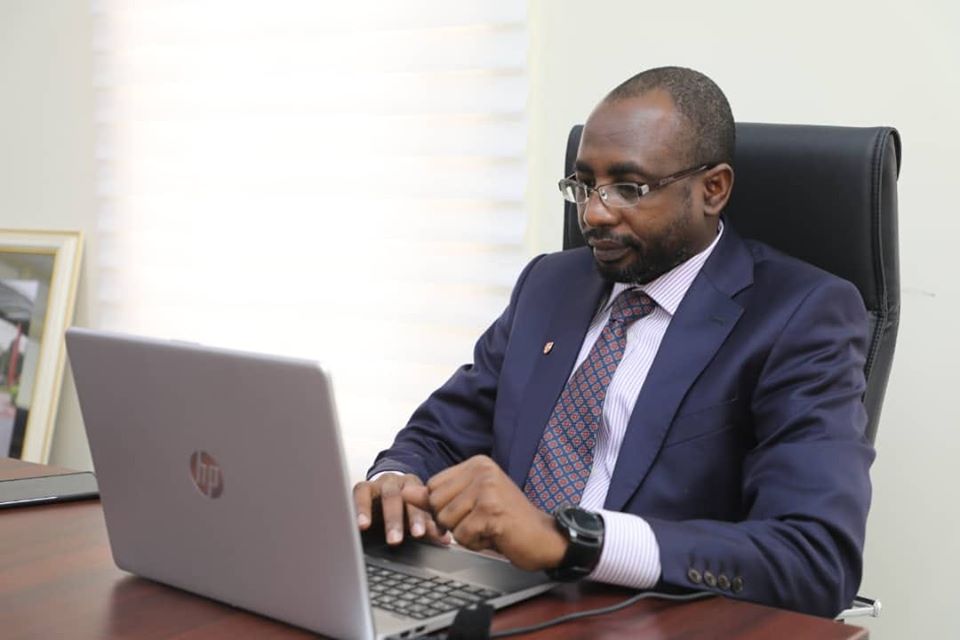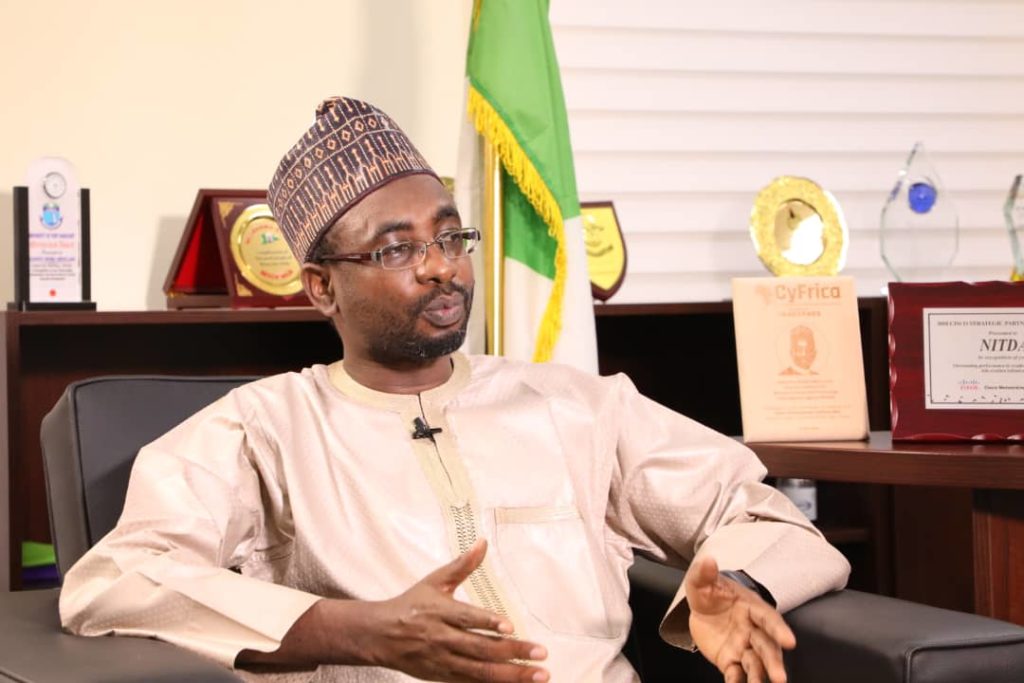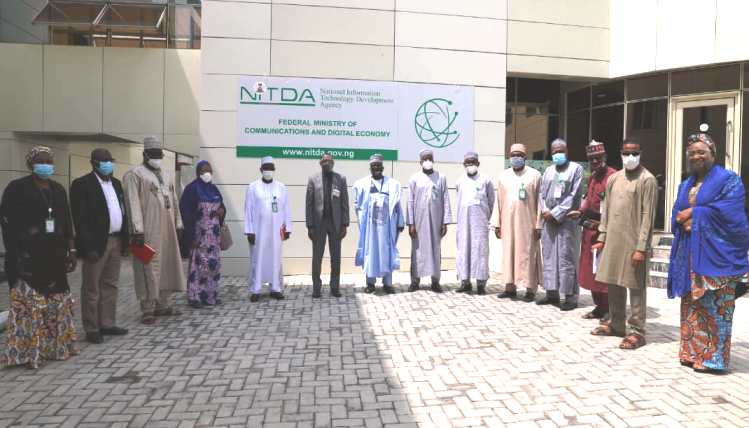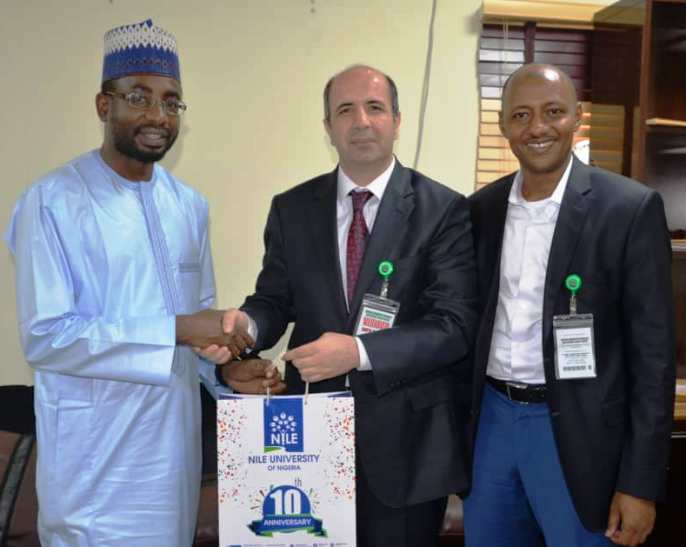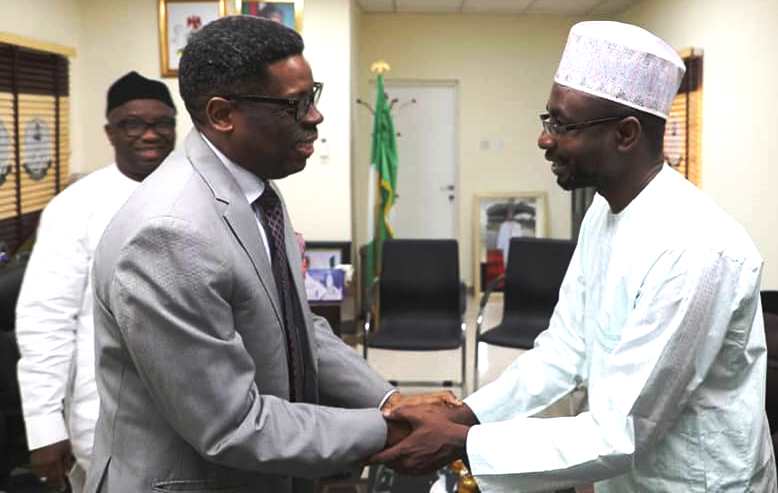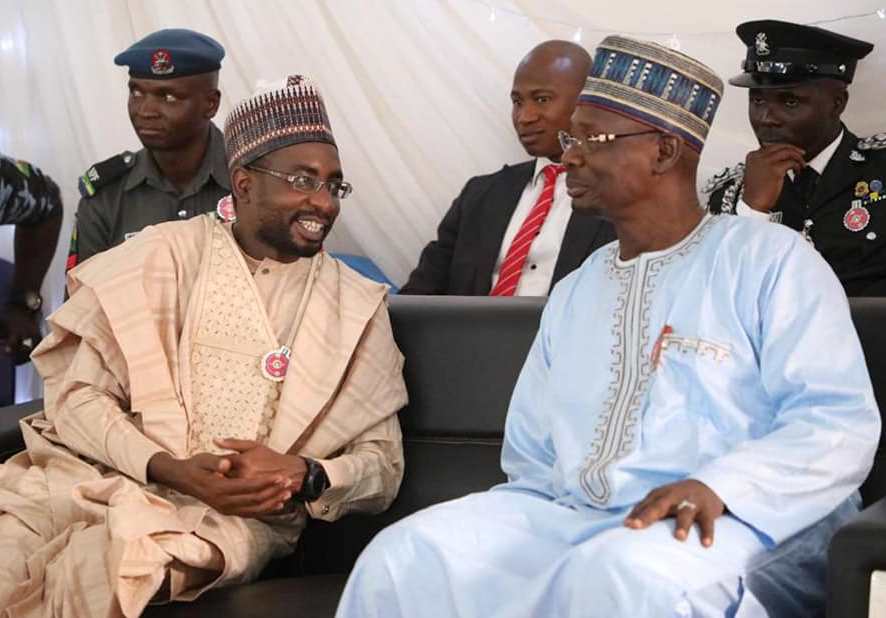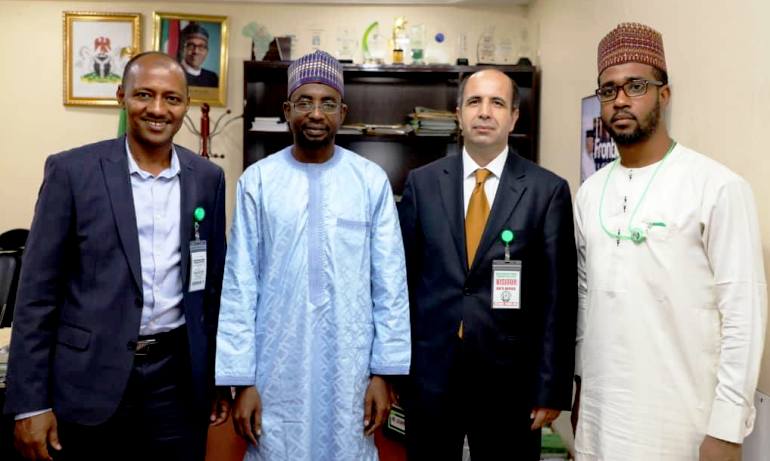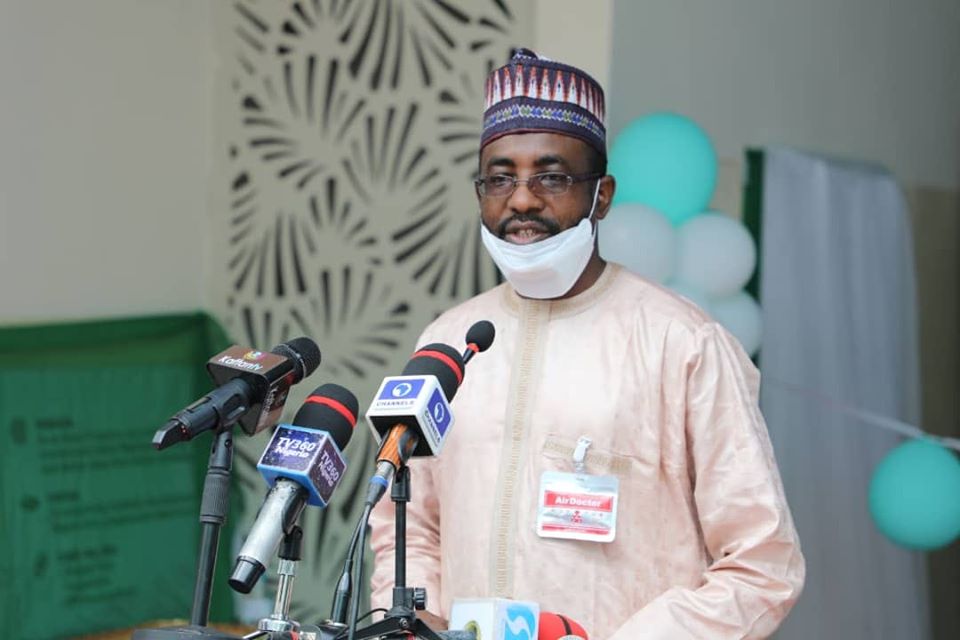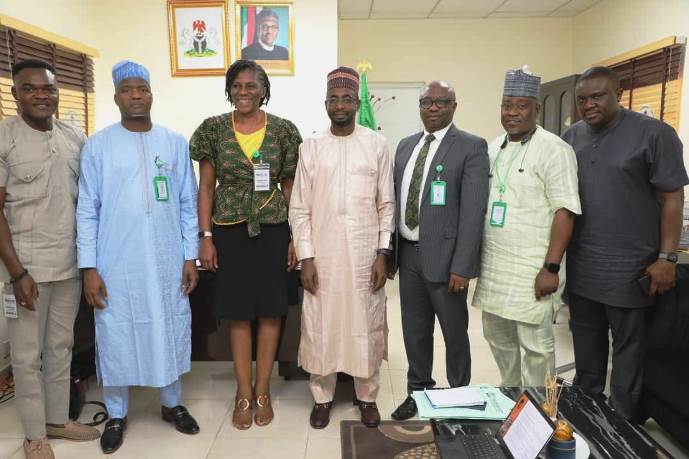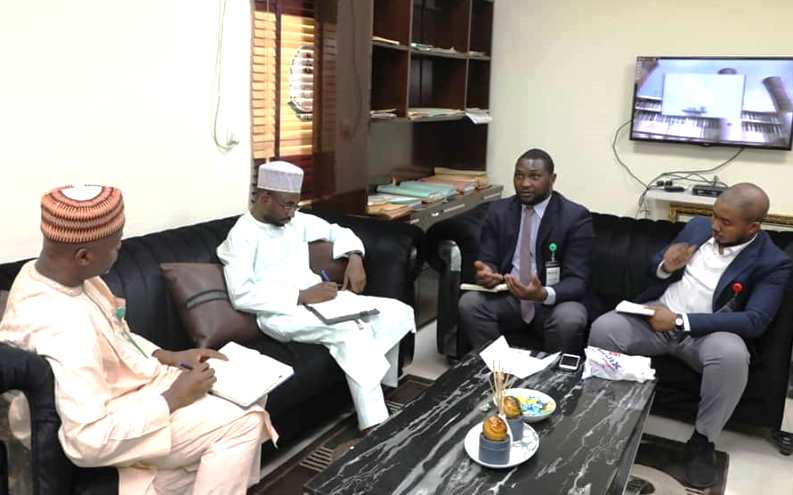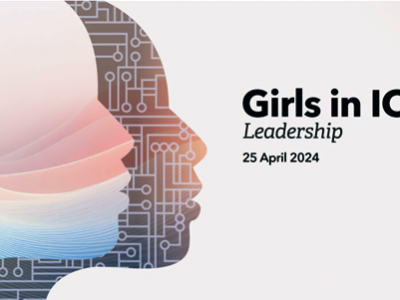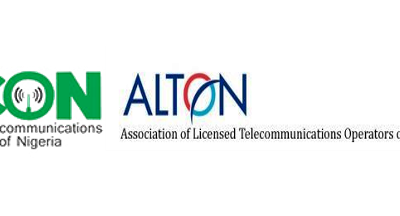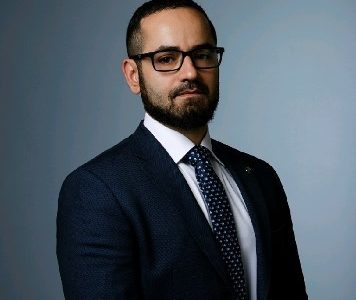This month, precisely August 20, one year ago, Kashifu Inuwa Abdullahi was appointed by President Muhammadu Buhari as Director General/CEO, National Information Technology Development Agency (NITDA).
The announcement came as a shock.
It will be the first time in almost two decades of NITDA’s existence that someone as young as Abdullahi, just turning 38 years, will be occupying the office.


Abdullahi had been recommended by the outgoing Director General/CEO, NITDA, Dr Isa Ali Ibrahim Pantami, who himself, had just been appointed Minister of Communications (now renamed Ministry of Communications and Digital Economy). The presidency in its wisdom that technology belongs to youth, approved the recommendation. It will be the first time an out-going boss will make such recommendations.
To Abdullahi, it was a surprise. He would admit this much thus: “This isn’t something that I expected or even envisaged. It was indeed a pleasant surprise. It however, shows the confidence my boss and mentor, Dr Isa Ali Ibrahim Pantami, has in my ability to the extent of recommending me to President Muhammadu Buhari, to take a giant leap step into his shoes. It is a great honor, and I am putting in my best not to disappoint the expectation of my boss and mentor, Mr. President, Nigerian Youths as well as the country as a whole.”
Abdullahi came to office with a burden of responsibilities, but he came prepared, mentored by his boss, the strong-willed Pantami, who had reworked NITDA to good results like no other director generals before him.
In two years, Pantami had made a somewhat compliant NITDA to assert its regulatory powers and affirmed its development mandate. The results were outstanding. Don’t mess with NITDA. When Abdullahi came to office, he carried a flaming baton that must not quench.
You will be wrong to think the new IT sheriff is a novice in the industry. Young! Yes! But he has walked the path of experience-building within the IT industry managing projects at Galaxy Backbone Limited and the Central Bank of Nigeria (CBN) among others.
“As you may be aware, I am not new in the Nigeria’s IT industry. I am at home being at the helm of affairs in NITDA. As a person that is open to new approaches and strategies, with the experiences I have gained for the last 15 years in the IT sector spanning between the private and the public sector and through unceasing study, my team and I have worked diligently to ensure the continuous development of the IT sector in Nigeria over the past 10 months. Remember, I picked it up from a good place to consolidate upon, considering the foundation laid by my boss and mentor, Dr Isa Ali Ibrahim Pantami,” said Abdullahi.
Taking stocks – Drive for IT compliance remains strong
In the last one year, there has remained a consistent focus on asserting NITDA’s regulatory mandate in IT procurement – one area his predecessor fought an untiring battle to ensure federal ministries, departments and agencies (MDAs) comply to the statutory provisions on IT procurement.
In May, the agency reported an assessment and clearance of 62 IT related projects worth N1.16 trillion for January through May. The report was a consolidation of NITDA’s persistence at ensuring compliance by MDAs to stave off corruption and save the country money.
In 2019, during eNigeria, President Muhammadu Buhari revealed that the IT clearinghouse has saved the Nigerian government over N16.8 billion through a more efficient procurement processes for ICT projects carried out by all MDAs. It was an affirmatory testimonial of good work by Mr. President himself on NITDA that Abdullahi has consolidated on.
For the NITDA’s boss staying focus on the agency’s mandate remains a mantra that is not about to change. NITDA’s mandate drives the focus inherently designed to meet government’s overall objective for national development. His words:
“You may be aware that NITDA is implementing a strategic roadmap for the development of Nigeria’s IT sector. It consists of 7 pillars that are in alignment with the 8 pillars of the National Digital Economy Policy & Strategy. The 7 key pillars of our Roadmap are IT Regulation, Capacity Building, Digital Inclusion, Digital Job Creation, Government Digital Service Promotion, Local Content Development, and Cybersecurity.
“We have rolled out several policies, regulations, and programmes, focusing on those areas. However, as the roadmap is set to expire this year as is the Nigeria Economic Recovery and Growth Plan (ERGP) which it draws from. NITDA has already commenced reviewing it as well as developing the next plan, which will soon be launched. It is in alignment with and takes cognizance of the National Digital Economy Policy and Strategy (NDEPS), the Nigeria Economic Sustainability Plan (NESP) and other important plans and policies of this administration.”
Data protection compliance on the rise
Nigeria kicked off its data protection journey in January 2019 to join the rest of the more forwardly-looking international community. Nigeria’s principal data protection legislation is the Nigeria Data Protection Regulation 2019 (“NDPR”).
“The NDPR was issued by the National Information Technology Development Agency (“NITDA/the Agency”) on 25 January 2019 pursuant to Section 32 of the NITDA Act 2007 as subsidiary legislation to the NITDA Act 2007.Jul 6, 2020.”
To NITDA’s credit, the NDPR goal is to ensure that Nigeria is not isolated technologically and legally from global best practice concerning data protection.
By law, all public and private entities handling personal data of citizens or ‘data subject’ are expected to submit a data protection audit within specific time frame.
Last year NITDA licensed 27 Data Protection Compliance Organisations (DPCOs) with responsibilities that include helping public and private entities file their data protection audits.
This year, more DCPOs were licensed to make the number 70. Abdullahi’s NITDA has fostered a data protection industry that leads the rest of the continent and valued at N1.8 trillion. As at today, licensed DPCOs have helped to create over 2,700 new jobs.
The pursuit of local content
Pantami staked up support for local content particularly for local original equipment manufacturers (OEMs). Abdullahi has pressed on in the pursuit of support for OEMs. Under him NITDA has continued to push for local OEMs to come first before foreign OEMs in terms of patronage by MDAs. The agency is also helping to promote support centres to help local OEMs improve customers’ experience for every purchase of local hardware.
“NITDA has demonstrated great support and has ensured improved patronage of indigenous OEMs in the last three years. It is a fact that the purchase of local devices by MDAs is unprecedented within these years compared to previous years before 2018. For instance, in 2015-2016 less than 250,000 devices were sold by indigenous OEMs. However, due to the intervention of NITDA, records show that in 2018/2019 alone OEMs sold three times the numbers sold prior to 2017 with about 778,886 of locally assembled devices sold in 2018 and 2019,” said Abdullahi.
He added: “However, there are some challenges with the implementation of the Presidential Executive Order 003 for promotion of local content in the procurement of MDAs and the NITDA issued Guidelines for Nigerian Content Development in ICT, which mandates MDAs also to purchase Nigerian hardware products. NITDA is implementing the Executive Order and Guidelines vigorously through active surveillance and IT Projects assessment and clearance process of the Agency. Nevertheless, procurement law requires OEMs to either bid directly or work with other contractors to bid to ensure transparency and value for money. If MDAs violate the process NITDA can then be notified for action.
“There is also a challenge with the quality of some of the indigenous brands. In an effort to address this challenge, in 2018, we mandated these OEMs to go through a rigorous certification process requiring them to have ISO 9001:2015 for quality management systems. This, we believe, will ensure they are able to provide products that meet quality and regulatory requirements always. Currently, only three out of 10 previously registered OEMs have been fully certified.”
NITDA, digital economy and skills retooling
In the last one year, NITDA has keyed into the ‘Digital Nigeria’ agenda helping to set the framework for public sector digitization and building a skill pool to leverage emerging opportunities in the knowledge economy.
On this plank, the agency has provided stream of digital trainings for Nigerians of diverse backgrounds across sectors; offered a portfolio of support to ICT hubs to substantially help generate more than 300,000 jobs even as COVID-19 bites.
Notably is the National Adopted Village for Smart Agriculture (NAVSA) programme. The NAVSA is designed to upskill farmers in order to help them improve productivity through SMART agriculture.
As part of its development interventions, the agency has in the last one year established Digital Capacity centres across all the country’s six geo-political zones; provided e-learning centres for various schools to help boost ICT capacity, access to knowledge and research contents.
As part of the digital economy agenda, artisans have featured remarkably in its training programme to help enhance capacity for service delivery. The digital training has a catchment that cuts across gender, demography and geographic space.
No less important, NITDA has continued to drive public sector initiatives geared at improving the country’s e-readiness and capacity to participate in the digital economy. According to Abdullahi, they include Nigeria e-Government Interoperability Framework (Ne-GIF); Nigeria Cloud Computing Policy (NCCP); Nigeria ICT Innovation and Entrepreneurship Vision (NIIEV); Framework and Guidelines for ICT adoption in Tertiary Institutions; Guidelines for Nigeria Content Development ICT as amended; and Data Protection Implementation Framework.
He said: “You may wish to know that even prior to the re-designation of the Federal Ministry of Communications, to include Digital Economy, NITDA has achieved a lot in that regard, through the implementation of a roadmap for the development of the Nigerian IT sector which consists of 7 pillars that are in alignment with the 8 pillars of the Digital Economy Policy & Strategy and the Nigeria IT Policy. For instance, in promoting a digital Nigeria, NITDA from August 2019 to date has launched and is implementing regulatory [these] instruments [as listed above].”
Promoting new skills and supporting startups
Under Abdullahi, NITDA has remained committed to growing the Nigerian startup ecosystem. The country remains atop of destinations on the continent for investments from venture capitalists (VCs). With millions invested already in nurturing and exposing Nigerian startups to the global community through platforms such as the GITEX, NITDA sees startups as the future of Nigeria’s digital economy.
The agency already has a strong tradition for supporting startups and innovation hubs, Abdullahi has remained unrelenting in ensuring that technology startups and hubs continue to flourish and attract international investments.
“Interestingly, Nigeria occupied the first position with a total investment of US $747 Million, followed by Kenya with a total investment of US $564 Million and Egypt that attracted a total investment of US $211 Million. In an effort to consolidate these efforts, we have a series of initiatives aimed at providing a conducive environment and support for the Start-up Ecosystem,” said Abdullahi.
He added: “These include:
- The NITDA Technology Innovation and Entrepreneurship Support Scheme, targeting startups hub owners and youth with talent and building their skills in high-demand skills;
- Policies such as Tax Incentives for startups, incentives for investors and access to market for innovation adoption;
- Establishment of Innovation and Research Fund to further catalyze the growth of startups;
- Development of an Innovation Portal to monitor the activities of the ecosystem;
- FinTech software, which is already exported;
- The innovation fund established by Government will reduce risk and attract FDI; and
- Establishment of the Tech4COVID19 Initiative to measure the impact of COVID-19 on the tech ecosystem and proffer solutions especially for startups. The committee has come up with a Strategic Plan to ensure we retain about 100,000 ICT Jobs and create an additional 30,000 in the Post COVID-19 Era. We have since initiated the implementation of these recommendations.
Facing COVID-19
For the young NITDA’s boss, COVID-19 has been both a challenge and an opportunity. NITDA unveiled a portfolio of initiatives to help technology business entrepreneurs stay afloat and leverage the emerging opportunities for new services resulting from the pandemic.
Abdullahi shared a ‘go-through’ list of the agency’s interventions to make COVID-19 a time of new opportunities.
“NITDA has launched several initiatives in order to ensure that technology continues to enable business continuity,” he said.
He added: “You may have followed some of our initiatives like:
- Tech4COVID19 Initiative – This initiative is set to measure the impact of COVID-19 on the tech ecosystem and proffer solutions especially for startups. The Committee we set-up has come up with a Strategic Plan to ensure we retain about 100,000 ICT Jobs and create an additional 30,000 in the Post COVID-19 Era.
- Virtual Startup Clinic – Startups where gathered, mostly young people to meet with mentors, successful entrepreneurs, investors, industry specialists, business consultants and hub operators with the goal of solving problems and challenges they were facing. We held two virtual startup clinics within a time frame of 1 month.
- Nigeria COVID-19 Innovation Challenge – An online innovation challenge was held to meet the challenges our society is facing as a result of the COVID-19 pandemic. 5 startups with highly innovative ideas were selected for the final challenge and 3 of them were selected for further incubation. A support of ₦1 000,000 ₦750,000 and ₦500,000 were won by the 1st, 2nd and 3rd winners respectively.
- NITDA Technology Innovation & Entrepreneurship Support Scheme – This is a scheme to support startups and hubs across the country. With over 120 hubs in Nigeria, we are finalizing plans to ensure rapid intervention is provided for hubs and startups based on competence and carefully selected criteria.
- We are continuing with our SMART Agric Project, where we engage farmers and focus on using precision/smart farming to ensure significant improvement in crop yield, quality of farm produce, efficiency and productivity; increased profit margin, harvest forecast, sales of farm produce and eco-friendly agriculture practice. During this pandemic, we have engaged 130 farmers on this Project.
- Furthermore, we setup and launched the NITDA Academy – a platform for virtual learning where thousands of young Nigerians can have access to a wide range of educational courses and tools online”


